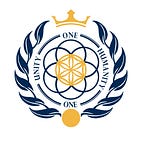Researchers to Help NASA Anticipate Conflicts for a Mission to Mars
To solve issues before they start for an upcoming Mars Mission, researchers from Northwestern University are working on a predictive model that will help NASA anticipate conflicts and communication breakdowns with crew members
NASA has official plans to fly a crewed spacecraft to Mars, a trip that involves 250 million miles of travel. Thus, Northwestern professors Noshir Contractor, Leslie DeChurch, and their partners, are working on innovations with a series of projects aimed at dissecting the insights from the science of teams and networks.
In a multiphase study performed at the Johnson Space Center in Houston and the SIRIUS mission in the Institute for Bio-Medical Problems (IBMP) in Russia — experts are analyzing the behavior of analogue astronaut crews on imitation missions, that include isolation, lack of sleep, specially engineered tasks and a mission control that simulates real space travel with delayed communication.
This project has three goals in mind: to determine the effects of isolation and confinement on how a team functions, to spot areas where the team can improve their performance, and figure out a predictive model that NASA could use to put together the optimal team and discern potential issues with already formed groups prior to and during the mission.
Contractor and DeChurch talked about their most recent results and the next steps to take during a press briefing held at the American Association for the Advancement of Science (AAAS) annual meeting in Washington, D.C. on Feb 17.
Contractor, a professor of Behavioral Sciences in the McCormick School of Engineering, School of Communication and the Kellogg School of Management explained that even for an astronaut, the physical demands of a mission to Mars would be extraordinary. The spacecraft will be small, only about the size of a studio apartment, and the round-trip journey will take nearly three years.
DeChurch, a communication and psychology professor at Northwestern s tated that astronauts are superhumans. People who are extremely physically fit and exceptionally intelligent. Thus, the goal of their work is to take an already outstanding crew selection system and make it even better by finding the values, traits, and other characteristics that will enable NASA to form a team that gets along.
Visit Asgardia.Space to learn more
